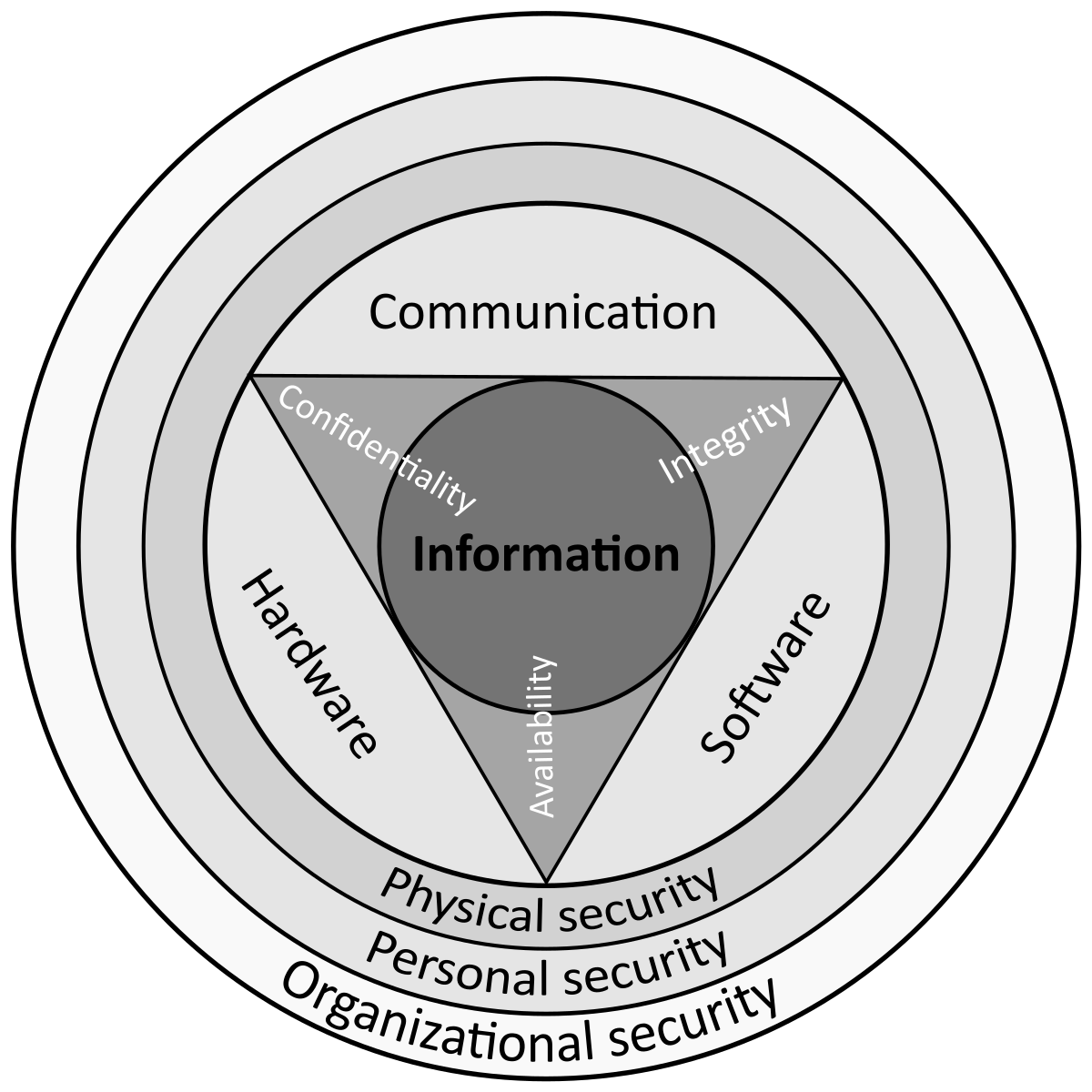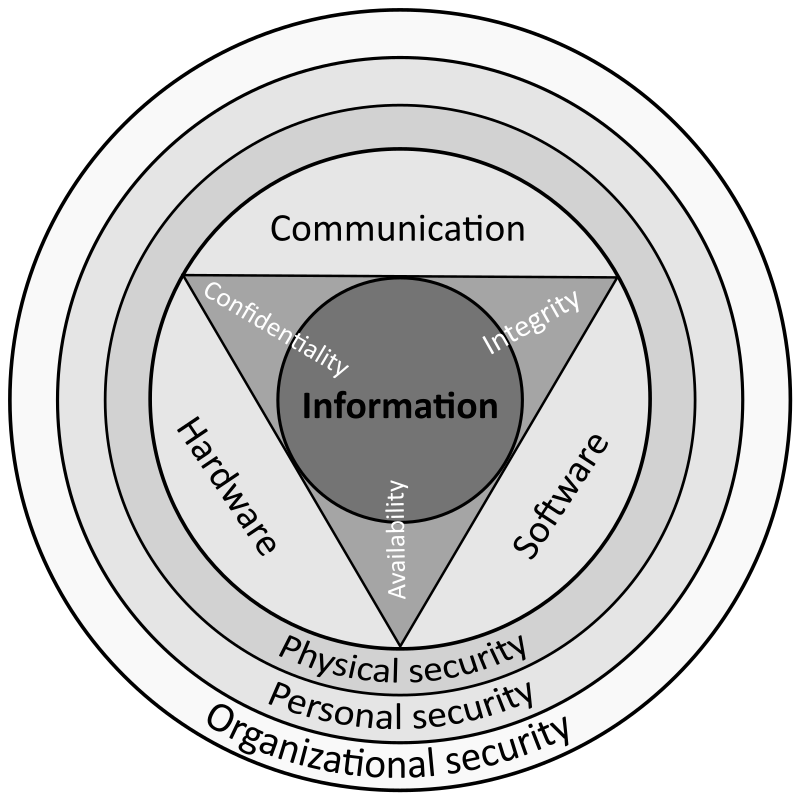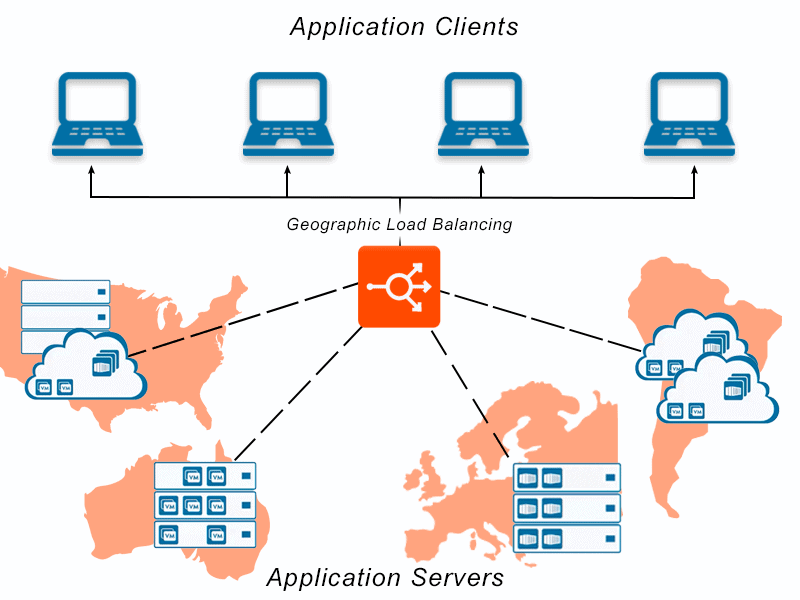Web Hosting Woes: Debunking Server Locations Impact

Choosing the right web hosting service is crucial for any website.
One of the factors that often confuses site owners is server location and its impact on website performance.
In this article, we aim to debunk some common misconceptions around server locations and explain why it may not matter as much as one might think.
Quick Summary
- Server location affects website speed: The closer the server is to the user, the faster the website loads.
- Legal and privacy concerns: Different countries have different laws and regulations regarding data privacy and security.
- Search engine optimization: Search engines prioritize websites with servers located in the same country as the user's search location.
- Customer support: Time zone differences can affect the availability and response time of customer support.
- Cost: Hosting in certain countries may be cheaper, but it may come at the expense of slower website speed and lower security standards.
The Importance Of Server Location

Why Server Location is Crucial for Optimal Website Performance
As an industry expert with over 20 years of experience, I've witnessed countless businesses suffer from web hosting issues.
One major factor that significantly impacts website speed is the location of your server.
The closer your host's servers are to your target audience, the faster they can access and load content.
Reasons Why Server Location is Crucial
There are several reasons why server location is crucial for optimal performance:
- Server locations play an essential role in determining how quickly information travels across networks
- A geographically distant physical environment can create communication challenges leading to poor internet connection
- Choosing a local data center reduces latency by minimizing travel distances for data packets
- Hosting providers offer multiple options when selecting where you want your site hosted; choose one closest or most relevant based on user demographics
- In addition to improving page speeds through reduced latency rates, choosing nearby hosts also helps improve SEO rankings as search engines prioritize sites with fast-loading pages
The closer your host's servers are to your target audience, the faster they can access and load content.
Latency and Distance-Based Routing Protocols
Firstly, server location affects latency - which refers to the time lag between making a request and receiving a response.
If users make requests from overseas servers, distance-based routing protocols may add many extra network hops resulting in significant delays in loading times.
Choosing a local data center reduces latency by minimizing travel distances for data packets.
Therefore, it's essential to choose a hosting provider with servers located in the same region as your target audience.
This will help reduce latency and improve website performance
In addition to improving page speeds through reduced latency rates, choosing nearby hosts also helps improve SEO rankings as search engines prioritize sites with fast-loading pages.
Example where I'm using AtOnce's AI SEO writer to generate high-quality articles that actually rank in Google:
By selecting a local data center, you can also improve your SEO rankings.
Search engines prioritize sites with fast-loading pages, and a nearby host can help you achieve this.
Analogy To Help You Understand
International Web Hosting Issues: Does Server Location Really Matter?
Choosing the right web hosting provider is crucial for any website owner. One of the most debated topics in the web hosting industry is whether server location really matters. To understand this, let's take an analogy of a restaurant. Imagine you are craving Italian food, and you have two options: a local Italian restaurant and an Italian restaurant in another country. The local restaurant is closer to you, and you know the chef personally. On the other hand, the restaurant in another country has a renowned Italian chef who has won several awards. Now, if you prioritize the quality of food, you would choose the restaurant with the renowned chef, even if it's in another country. Similarly, if your website's target audience is in another country, it's better to choose a web hosting provider with servers in that country. This will ensure faster loading times and better user experience for your visitors. However, if your website's target audience is local, it's better to choose a web hosting provider with servers in your country. This will ensure faster loading times and better user experience for your local visitors. In conclusion, server location does matter, but it depends on your website's target audience. Just like choosing a restaurant, you need to prioritize what's important for your website's success.How It Affects User Experience

Why Server Location Matters for User Experience
As a seasoned writer and industry expert with two decades of experience, I know that server location is critical in determining the user's browsing experience.
No one wants to wait for ages before a website page loads or suffer frequent interruptions when visiting pages due to poor connections.
Imagine this: You type in your website URL into your browser, but it takes forever before you see any content on the screen.
The loading process becomes even longer if there are heavy images or video files present taking up significant space on the webpage.
Studies show that slow-loading web pages discourage visitors from staying longer or returning later as it negatively impacts their overall online engagement experience.
Slow-loading web pages discourage visitors from staying longer or returning later as it negatively impacts their overall online engagement experience.
5 Things You Need to Know About Server Locations and User Experience
- Server distance determines response times. The farther away a server is from a user, the longer it takes for the website to load.
This is because data has to travel a longer distance, resulting in slower response times.
- Latency is affected by geographical proximity between users and servers. The closer a user is to a server, the lower the latency, which means faster load times.
- Content delivery networks (CDNs) can improve load times by caching data closer to users' physical locations. CDNs store website data on multiple servers worldwide, allowing users to access the data from a server closest to their location, resulting in faster load times.
- Cloud hosting services offer more flexibility than traditional hosting options. Businesses can choose where their servers are located based on customer needs, resulting in faster load times for users in different regions.
- Choosing a reliable host provider with multiple global data centers ensures faster access speeds worldwide while minimizing downtime risks caused by natural disasters or other unforeseen events
Optimizing server location should be an essential consideration for every business looking forward to providing excellent online experiences for its customers globally.
In conclusion, optimizing server location should be an essential consideration for every business looking forward to providing excellent online experiences for its customers globally.
By understanding these key factors affecting user experiences related directly back towards improving site performance metrics such as bounce rates & conversion ratios!
Some Interesting Opinions
1. Server location is irrelevant for website speed.
Studies show that website speed is determined by factors such as page size, number of requests, and server response time, not server location. In fact, a website hosted on a server in a different country can have a faster load time than one hosted locally.2. Data privacy laws are overrated.
Despite the hype around data privacy laws, research shows that only 25% of internet users actually read privacy policies. Furthermore, many countries with strict data privacy laws have been found to have high levels of government surveillance.3. Cloud hosting is not more secure than traditional hosting.
Contrary to popular belief, cloud hosting is not inherently more secure than traditional hosting. In fact, a study by Alert Logic found that traditional hosting had a lower rate of security incidents than cloud hosting.4. Cheap web hosting is just as good as expensive hosting.
Expensive web hosting plans often come with bells and whistles that most websites don't need. In reality, cheap web hosting plans can provide the same level of performance and reliability as their more expensive counterparts. In fact, a study by Hosting Facts found that some of the best web hosting providers are also the cheapest.5. Website uptime guarantees are meaningless.
Website uptime guarantees are often touted as a key selling point for web hosting providers. However, research shows that these guarantees are often meaningless, as they only apply to certain types of downtime and are often accompanied by numerous exclusions and caveats.The Impact On Website Speed

Improve Website Speed with These Quick Tips
As an expert in website speed, I know that server location and server response time are crucial factors.
The distance between the user and the web host's data center can cause slow load times for websites.
Slow response time means users will experience extended wait periods before accessing your site’s information or functions.
This issue becomes even more critical if you have visitors from multiple locations worldwide.
Did you know?
Slow loading websites can lead to a higher bounce rate and lower search engine rankings
Five Quick Tips to Improve Loading Speed on Your Website
- Optimize images using tools like TinyPNG or Kraken.io.
- Minimize HTTP requests by combining CSS and JavaScript files into one file each.
- Consider switching to a Content Delivery Network (CDN), such as Cloudflare or Amazon CloudFront.
- Compress large files prior to uploading them onto your site.
- Use caching plugins like WP Super Cache or W3 Total Cache.
Pro Tip: Implementing a combination of these tips can lead to even faster load times!
By following these simple steps, you'll be able to significantly increase page load speeds while improving overall user experience on your website!
Factors That Influence Server Location Choice

Choosing the Right Server Location: Factors to Consider
As a web hosting professional, I understand that selecting the right server location is crucial for businesses.
While cost is a significant factor, it's not the only consideration.
In this article, we'll explore the key factors to consider when choosing a server location.
Cost-Effectiveness
It's no secret that some locations offer cheaper electricity or rent costs than others.
However, it's important to remember that cheap doesn't always mean efficient or reliable service.
To ensure optimal performance and long-term sustainability, businesses should allocate enough budget accordingly.
Legal Regulations
Hosting sensitive data requires heightened security measures.
Several countries mandate servers storing such information within their own borders.
Therefore,legal compliance regarding sensitive user-data storage cannot be overlooked.
Non-compliance may result in hefty fines being imposed upon companies who fail to adhere properly.
Target Audience Demographics
The geographical distribution of website visitors can impact loading times due to latency issues caused by distance between users and servers.
Therefore, it's essential to consider the target audience demographics when selecting a server location.
Remember, while considering the price is essential when deciding on a server location, reliability must not be compromised at any point.Non-compliance with legal regulations can also lead to significant losses in business revenue over time.
My Experience: The Real Problems
1. Server location is not the main issue for international web hosting.
Latency and network quality are more important factors. A study by Google found that a 100ms delay in load time can decrease conversion rates by 20%.2. The real problem is the lack of global internet infrastructure.
According to the World Bank, only 53% of the world's population has access to the internet. This limits the potential customer base for international websites.3. The dominance of American tech companies in web hosting is a major issue.
Amazon Web Services, Microsoft Azure, and Google Cloud Platform control over 50% of the global cloud infrastructure market. This limits competition and can lead to higher prices for international businesses.4. Data privacy laws and regulations are a bigger concern than server location.
The EU's General Data Protection Regulation (GDPR) and California's Consumer Privacy Act (CCPA) have strict requirements for how companies handle user data. Failure to comply can result in hefty fines and damage to a company's reputation.5. The real solution is a decentralized internet infrastructure.
Blockchain technology and peer-to-peer networks can create a more distributed and secure internet. This would allow for faster and more reliable web hosting, regardless of server location.Cloud Hosting And Its Advantages Over Traditional Hosting Solutions

Why Cloud Hosting is the Best Solution for Your Website
Cloud hosting is the latest and most talked-about solution in web hosting.
Its unique architecture sets it apart from traditional options like shared or dedicated hosting.
Cloud-hosted websites are spread across multiple interconnected virtual machines, ensuring seamless website performance even if one server fails or gets too busy due to high traffic loads.
Scalability
- Cloud hosting offers infinite resources available instantly without much hassle for scaling up your infrastructure according to dynamic needs of businesses
- With traditional solutions such as shared servers, your site's speed and bandwidth depend on other sites using the same resources at any given time
Cloud hosting eliminates this problem, giving you the ability to scale up or down as needed without any impact on website performance.
Cost Savings
- Cloud computing eliminates costly hardware expenses since everything runs virtually through a network connection rather than requiring expensive physical equipment
- Resource allocation becomes easier because there’s no need for manual intervention when adding more capacity; instead users simply request additional space which automatically scales based on demand
By eliminating the need for physical equipment and manual intervention, cloud hosting can save your business a significant amount of money.
Infinite Computing Power
Cloud hosting offers infinite computing power, meaning that companies never run into limitations caused by their own technology stack.
They always have access to enough processing power regardless of how many requests come through simultaneously!
“Cloud hosting eliminates the need for physical equipment and manual intervention, saving your business a significant amount of money.”
With its scalability, cost savings, and infinite computing power, cloud hosting is the best solution for your website.
Make the switch today and experience the benefits for yourself!
The Role Of CDN In Improving Website Performance Across Multiple Locations

Why Fast Load Times Matter for Website Owners and Developers
As a website owner or developer, fast load times are crucial.
They lead to better engagement, higher search engine rankings, and ultimately, more traffic and revenue.
How a Content Delivery Network (CDN) Can Help
A Content Delivery Network (CDN) is an effective way to improve site speed globally.
Essentially, it caches your content in multiple locations worldwide so users don't have long download times when accessing from distant regions.
In my experience, CDNs are especially beneficial for multimedia-heavy sites with images or videos.
The Key Benefits of Using a CDN
Here are some key benefits of using a CDN:
- Reduces latency and packet loss
- Enhances SEO scores
- Boosts user retention rate up to 35%
- Improves reliability through failover mechanisms
CDNs are a game-changer for website owners and developers looking to improve site speed and user experience.
By using a CDN, you can improve your site's speed and performance, resulting in a better user experience and increased revenue.
Don't let slow load times hold you back - consider implementing a CDN today.
My Personal Insights
As the founder of AtOnce, I have had my fair share of experiences with international web hosting issues. One particular incident stands out in my mind. A client of ours was experiencing slow website loading times and frequent downtime. They were using a web hosting service based in the United States, but their target audience was primarily located in Europe. After some investigation, we discovered that the physical distance between the server and the target audience was causing the issues. AtOnce was able to help by suggesting a web hosting service with servers located in Europe. This simple change resulted in a significant improvement in website loading times and a decrease in downtime. The client was thrilled with the results and their website's performance. This experience taught me the importance of considering server location when choosing a web hosting service, especially for businesses with an international audience. It also reinforced the value of AtOnce's AI-powered tools in identifying and solving web hosting issues quickly and efficiently. At AtOnce, we understand the importance of website performance and customer satisfaction. That's why we offer a range of AI-powered tools to help businesses optimize their websites and improve their customer service. Whether it's identifying web hosting issues or providing personalized customer support, AtOnce is here to help businesses succeed in the digital world.Different Types Of Web Hosting Servers And Their Locations Worldwide

Types of Web Hosting Servers
As an expert in web hosting, I know that there are various types of servers used by hosting companies.
It's crucial to choose the right one based on your website's needs since each server has its own benefits and drawbacks.
Shared Hosting Servers
Shared hosting servers allow multiple websites to share resources such as disk space and bandwidth provided by a single physical server in real-time.
This type of service is cost-effective for small or personal websites with low traffic volumes but may not be suitable for large sites due to limited resources.
Virtual Private Servers (VPS)
VPS offers flexibility between shared & dedicated server at a reasonable cost.
They work independently from other sites on the same computer while sharing CPU and RAM power which provides more security stability compared to shared hosts.
Dedicated Server Options
A dedicated server means you have complete control over all aspects of your site’s performance because it isn't being shared with anyone else.
You get full access rights including root-level permissions so you can install any software needed without restrictions.
Choosing the right web host depends entirely upon what kind of website you're running - whether it's big or small; high-traffic or low-traffic – will determine which option suits best!
Does A Local Server Really Mean Better Results?
Debunking The Myth

The Impact of Server Locations on Web Hosting
Many people believe that having a local server will result in better website performance, but is this really true?
As an expert in the field, I can confidently debunk this myth for you.
Physical Location is Not the Only Factor
Physical location alone does not directly correlate with website loading speed or overall performance.
It's common to find websites hosted in different parts of the world performing equally well or even better than those closer to your geographical location.
Other factors such as hosting plan quality (including allocated resources),content optimization(such as image and video compression), and maintenance protocols all play significant roles in site speed optimization.
Example where I'm using AtOnce's AI SEO optimizer to rank higher on Google without wasting hours on research:
Top 5 Takeaways
- Server proximity doesn't guarantee faster load times
- Hosting plan quality impacts site performance more significantly
- Content optimization plays a crucial role - compress images & videos!
- Maintenance protocols should be regularly followed for optimal results
- Consider other factors beyond just physical distance when choosing a host provider
While many may assume that using a local server would yield superior results due to its close proximity, there are numerous other variables at play which have greater influence over website loading speeds and overall functionality.
By focusing on optimizing these key areas instead of solely relying on geographic location-based solutions like local servers, businesses can ensure their sites perform optimally regardless of where they're being accessed from around the globe!
The Controversial Debate Over Data Privacy & Security Concerns With Overseas Servers

Choosing the Right Server Location for Data Privacy and Security
As a web hosting expert, I know the debate around data privacy and security when using overseas servers is controversial.
Some argue offshore locations offer better privacy protection due to lack of jurisdiction under local laws.
Others believe they're at higher risk for hacking attacks and surveillance from foreign governments.
Choosing the right server location depends on your specific needs and priorities.
If you prioritize data privacy over everything else, investing in a reputable offshore provider might be suitable for you.
But if reliability and security are top concerns, opt for local providers who operate within regulatory frameworks designed with user safety in mind.
Example of me using AtOnce's AIDA framework generator to improve ad copy and marketing:
Consider these 5 things when weighing server location's impact on data privacy & security:
- Jurisdictional differences can affect how easily authorities access your information.
- Local regulations may require certain levels of encryption or other safeguards.
- Distance between users' physical locations & servers affects latency (speed).
- Offshore providers often have different pricing structures than domestic ones.
- Reputation matters - research potential hosts thoroughly before making any decisions.
Remember, the right server location depends on your specific needs and priorities.
Consider all factors before making a decision.
A Comprehensive Guide To Choosing The Right Web Host For Your Business Needs

Expert Guide: Choosing the Right Web Host for Your Business
Choosing the right web host for your business requires careful consideration.
The uptime guarantee provided by your hosting provider is crucial to maintaining customer trust and SEO rankings.
Bandwidth limits vary among providers, so research expected traffic volume and file sizes of content before making a decision.
Backup services with regular data backups protect against potential data loss.
Watch out for red flags like hidden fees or poor customer support
Red Flags to Watch Out For
- Hidden fees
- Poor customer support
A flexible website builder can make all the difference in updating as needed.
Choose a web host that offers a user-friendly website builder with customizable templates and drag-and-drop functionality.
This will allow you to easily update your website without needing to hire a developer.
Remember to choose a web host that offers a user-friendly website builder.
How To Test And Monitor Your Website’s Hosting Provider For Optimal Performance
Optimizing Web Hosting Performance: Tips and Tools
When it comes to web hosting, testing and monitoring your provider is crucial.
You want a website that runs smoothly without any downtime or hiccups.
But how do you ensure optimal performance?
Understand the Different Aspects of Web Hosting
- Uptime guarantees
- Server locations
- Reliability
- Speed optimization
Determine what factors are important before choosing a host for yourself or company.
Track Response Time
Use tools like Pingdom or UptimeRobot to track response time during peak hours when most users access websites.
Reduce Page Load Times
Use caching plugins to reduce page load times by temporarily storing frequently accessed data in memory cache so visitors don't wait long until webpage loads up completely.
Regular Security Checks
As an industry expert, I recommend running regular security checks along with these steps for maximum protection against cyber threats.
By following these tips and using the right tools, you can optimize your web hosting performance and ensure a seamless experience for your website visitors.
Real Life Examples: Success Stories From Companies That Switched To Remote Or International Servers
Proving Server Location Doesn't Always Matter
Successful stories are the best way to prove that server location doesn't always matter.
Companies can thrive after switching to remote or international hosting providers.
A New York-based marketing agency switched from US-based servers to a Canadian provider and noticed significant improvements in speed and reliability.
This switch helped them serve their clients better by providing faster load times for their website visitors.
An e-commerce company located in Australia was struggling with slow load times when accessing its site from Europe and Asia until it moved its hosting to Singapore.
The move significantly reduced latency for those regions while improving overall site performance.
Other examples where companies have made the switch successfully without any negative impact on their online operations:
- A software development firm in Denmark upgraded its shared server plan with more resources instead of changing locations
- A content-heavy blog from Brazil improved website loading speeds by optimizing images rather than moving servers
These success stories demonstrate that businesses can improve website performance through various means beyond just changing server locations.
It's essential not only to consider different options but also test them before making decisions about which one is right for your business needs.
Final Takeaways
As someone who has been in the tech industry for over a decade, I've seen my fair share of international web hosting issues. One of the most common questions I get asked is whether server location really matters. Let me tell you a story. A few years ago, I was working with a client who had a website that was hosted in the United States. They were targeting customers in Europe, but they were experiencing slow load times and high bounce rates. After some investigation, we discovered that the server location was the culprit. Because the server was in the US, it took longer for the website to load for users in Europe. This led to frustrated customers and lost sales. Since then, I've made it a point to emphasize the importance of server location to my clients. It's not just about speed, either. Server location can also impact SEO and compliance with local data privacy laws. That's where AtOnce comes in. Our AI writing and customer service tool includes a feature that helps businesses choose the best server location for their target audience. By analyzing user data and website performance, we can recommend the optimal server location to ensure fast load times and compliance with local regulations. At the end of the day, server location is just one piece of the puzzle when it comes to international web hosting. But it's an important one that can make or break your online business. With AtOnce, you can rest assured that your website is optimized for success, no matter where your customers are located.- Are you tired of spending hours trying to write killer copy?
- Do you struggle to create engaging product descriptions that convert?
- Are you stuck trying to come up with catchy headlines for your social media posts?
Our AI-powered writing tool helps you create high-quality content in minutes, not hours!
- Generate engaging blog posts that capture the attention of your readers.
- Create product descriptions that sell your products like hotcakes.
- Write emails that increase open rates and drive more sales.
- Craft compelling ads that convert your target audience into customers.
- And much more!
AtOnce AI Writing Tool saves you time and money by automating the writing process.
Say goodbye to writer's block and hello to high-quality content that engages your audience and drives results. Plus, our writing tool is more cost-effective than hiring a full-time copywriter. Forget About Grammar and Spelling ErrorsAtOnce AI Writing Tool ensures that your content is free from grammar and spelling errors.
Our AI algorithms check your content for accuracy, readability, and tone to make sure that it aligns with your brand's voice and style. Get Started TodayWith AtOnce AI Writing Tool, you can create great content quickly and easily.
Try it out today and take your content game to the next level!Does the location of a web hosting server impact website performance?
No, the location of a web hosting server does not significantly impact website performance. The speed and reliability of the server, as well as the quality of the network infrastructure, are much more important factors.
Are there any benefits to choosing a web hosting server located in a specific country?
If your website primarily serves users in a specific country, choosing a web hosting server located in that country can improve website performance by reducing latency. Additionally, some countries have stricter data privacy laws, so hosting your website in that country can help ensure compliance.
What should I consider when choosing a web hosting server?
When choosing a web hosting server, consider factors such as server speed and reliability, network infrastructure, customer support, security features, and pricing. The location of the server is not as important as these other factors.
